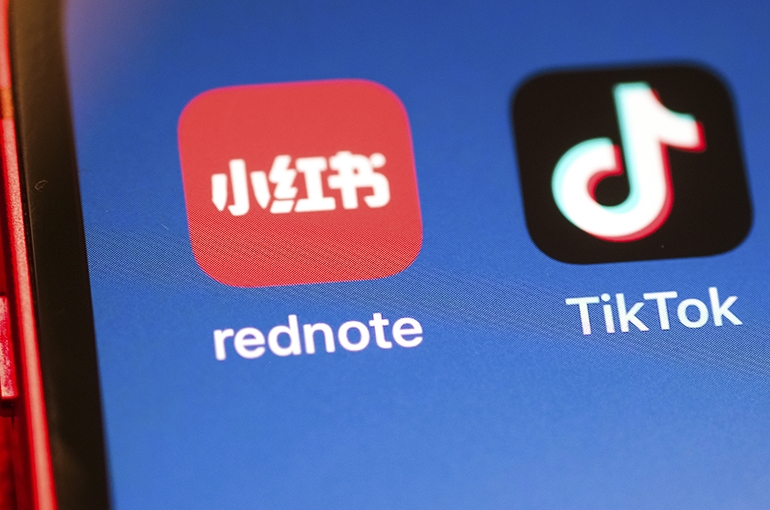 Douyin, Xiaohongshu, Other Platforms Tweak Algorithms as China Cracks Down on Info Bubbles
Douyin, Xiaohongshu, Other Platforms Tweak Algorithms as China Cracks Down on Info Bubbles(Yicai) May 22 -- Douyin, which is the Chinese version of TikTok, Xiaohongshu, a social e-commerce platform, and other key internet platforms have started overhauling their algorithms in a positive response to the recent clamp down by the country's internet watchdog on ‘information bubbles,’ which are algorithm-driven content feeds that limit the range of information offered to viewers.
Douyin introduced a new content preference evaluation feature recently that lets users view their recently browsed content and adjust their preferences, the Cyberspace Administration of China said today. Xiaohongshu launched a similar tool, adding an “Explore More” button to make it easier for users to break out of their content bubble with a single click.
The term ‘information bubble’ or ‘information cocoon’ refers to the tendency for people to gravitate toward content that aligns with their own interests. This can lead to a narrow, one-sided stream of information and distorted perceptions. In recent years, as internet platforms increasingly rely on algorithms to push personalized content, concerns around ‘information cocoons’ have been growing.
To address this issue, regulators launched a special campaign in November last year to rectify algorithm-related problems on major internet platforms. They have been pushing companies to adjust how their algorithms recommend content and to improve related features.
Other platforms such as social media sites Weibo and WeChat as well as short video platforms Kuaishou and Bilibili have also systematically optimized several features to safeguard users’ right to choose, enhance content diversity and improve algorithm transparency, the watchdog said.
While increased oversight of these algorithms has achieved some results, there are still issues such as the ineffective use of features and low quality of recommended content, said an official from the Cyberspace Administration. As a result, content feeds still fall short of public expectations.
Algorithm regulation is a long-term and systematic endeavor, the person said. Regulators will conduct regular inspections in the future and urge platforms to continue to refine how their algorithms work and optimize their management rules so as to consistently improve the quality of recommended content, the person added.
Editor: Kim Taylor